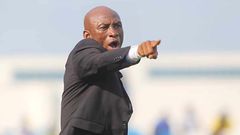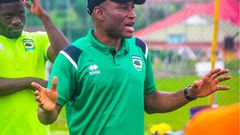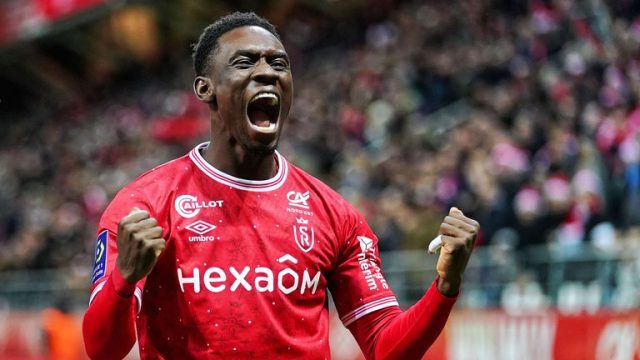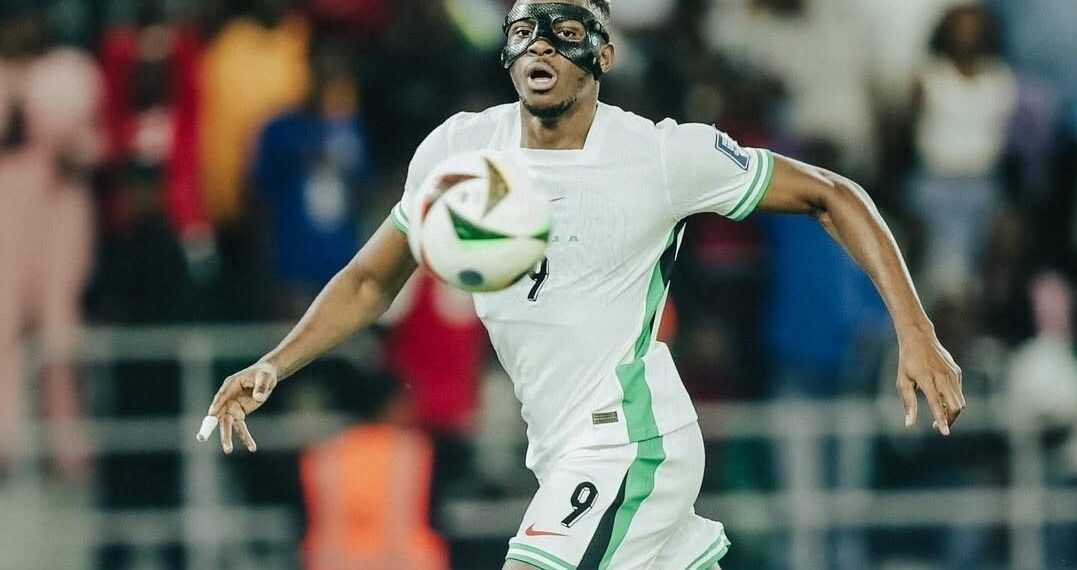It was another tense weekend for African football fans—especially those following the Ghana Premier League—as Asante Kotoko, one of Ghana’s most storied clubs, slipped to a 1-0 defeat at Nana Fosu Gyeabour Park. This result marked Kotoko’s third straight loss, a disturbing trend not seen since early March 2024, sparking conversations at viewing centres from Accra to Lagos. For many Nigerian supporters, who often keep a watchful eye on West African football and have admired Kotoko’s legacy, the club’s recent run serves as both a cautionary tale and a topic of heated debate.
The mounting pressure is clearly weighing on head coach Prosper Narteh Ogum. This latest slip has brought Kotoko’s points tally level with their archrivals, Accra Hearts of Oak—a fact that amplifies the tension and urgency, given the intense rivalry that mirrors the passion seen in Nigerian league derbies. Whether at Lagos Island football bars or Kumasi’s vibrant support bases, conversations quickly turn to Ogum’s job security and the team’s ability to bounce back.
Speaking after the match, Coach Ogum voiced his concerns about the team’s inability to convert opportunities into goals—a weakness that has defined their recent form. “We need to be more purposeful in front of goal,” Ogum explained in his post-match interview, echoing sentiments shared by local pundits both in Ghana and across West Africa. He continued, “If we had taken our chances, we wouldn’t be facing this unfortunate defeat. You can’t afford to miss full chances like these in a game.”
Ogum’s direct appraisal resonated with many analysts in Nigeria and the wider region. According to Lagos-based sports commentator Ifeanyi Daniels, “Finishing determines championship credentials in any league, and Kotoko’s experience serves as a lesson for clubs across Africa. It’s not about how many opportunities you create—it’s about how often you take them.”
Under fire, Ogum faces scrutiny

Prosper-Narteh-Ogum
Disappointment quickly reverberated through the Asante Kotoko fanbase after the defeat, with growing calls for a tactical shakeup. Many supporters are vocal about wanting a new strategic direction, especially in light of the club’s struggle to secure consistent results in the league. Social media spaces, football hotlines in Accra, and even WhatsApp groups in Lagos mirror similar sentiments—supporters want answers and accountability not only from the players, but also from their coach.
When comparing Kotoko’s current plight to situations faced by Nigerian teams—such as Enyimba’s difficulties with mid-season slumps—analysts point to structural similarities. Both clubs have struggled at times with pressure from passionate fans, unexpected tactical missteps, and a relentless media landscape. Reports show that intense scrutiny of managers is commonplace in West African football, and it remains to be seen whether Kotoko’s management will back Ogum or seek new leadership before the season’s end.
Looking ahead, Kotoko is gearing up to face Nations FC in their next fixture. For a club whose history is defined by repeated continental campaigns and legendary rivalries, the pressure to change the narrative is immense. According to journalist Kwame Appiah, “The next fixture is not just about points—it’s about pride, momentum, and proving that this squad is still a force in Ghanaian and West African football.”
In addition to on-field developments, there is reportedly some good news for Kotoko fans: the club allegedly plans to return to their home ground, Baba Yara Sports Stadium, for upcoming matches. This includes the much-anticipated “Super Clash” against Hearts of Oak—a fixture that has historically drawn massive crowds and media attention from across West Africa, much like Nigeria’s own derby fixtures. Local authorities are optimistic that the return to a familiar ground could inspire a turnaround and revive team spirit.
The broader context of Asante Kotoko’s struggles also mirrors global challenges in club management and player psychology. In an era where West African clubs aspire to compete internationally, adapting to setbacks and managing pressure is more crucial than ever. Experts from the Confederation of African Football (CAF) have pointed out that robust youth development, mental health support, and data-driven tactics are becoming essential tools for African outfits that seek to remain competitive both regionally and on the continental stage.
Globally, football clubs periodically face similar crossroads. European teams such as Manchester United and Barcelona have weathered turbulent stretches in recent years, with fan bases vocally demanding change and teams responding through coaching adjustments and squad investments. The Kotoko scenario underscores how lessons from Africa’s top leagues are increasingly reflecting broader football trends and challenges.
For many Nigerian fans, the unfolding drama offers key insights into club management, tactical discipline, and the unique elements that shape Ghanaian football culture. According to sports historian Bello Maku, “The Asante Kotoko case serves as a clear reminder to Nigerian clubs that historic success requires constant innovation, unity, and a clear vision—qualities that transcend borders and define elite football everywhere.”
As the league season progresses, all eyes will be on Kotoko’s ability to halt their decline and reassert themselves as title contenders—a journey that resonates with football lovers well beyond Ghana’s borders. Will Coach Ogum respond to the mounting pressure and orchestrate a revival, or is this the beginning of a new chapter in the club’s storied history? For stakeholders, fans, and pundits, the answers could ripple across West Africa’s passionate football community for months to come.
How do you see Kotoko’s recent struggles impacting the broader West African football landscape? Will a return to Baba Yara Sports Stadium help restore confidence, or do you think a tactical overhaul is needed for the Porcupine Warriors to reclaim their dominance? Share your thoughts below, and let’s keep the conversation going as the Ghana Premier League unfolds.
Have an insider football story, unique fan experience, or match-day photo from Nigeria, Ghana, or anywhere in Africa? Want your voice heard or have a sports scoop to share or sell?
Email us at story@nowahalazone.com and your story could be featured. For general support or further info, reach out at support@nowahalazone.com.
Stay in the game with us—follow nowahalazone for breaking sports updates, fan polls, and exclusive football analysis on Facebook, X (Twitter), and Instagram! Don’t miss out—comment below and engage with fellow West African football fans.










